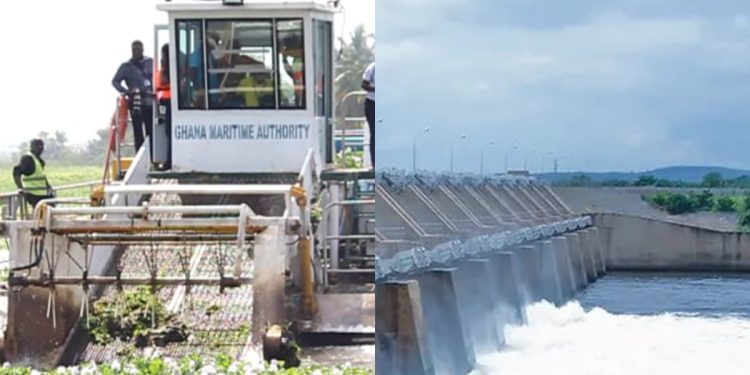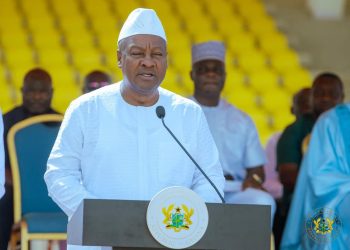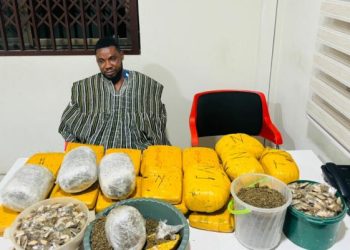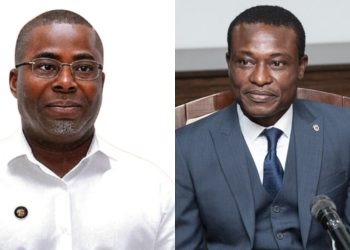The Volta River Authority (VRA) complains of weeds choking the Kpong Dam and stands to lose as much as GH₵10 million each month in power generation at the Kpong Hydroelectric Power Plant as a result of invasive aquatic weeds that are increasingly obstructing hydro operations.
This alarming revelation was made by Ing. Akim Tijani, Project Manager in charge of Technical Services at the plant, during a three-day inland waterways assessment tour led by the acting Director-General of the Ghana Maritime Authority (GMA), Navy Captain (Rtd.) Dr Kamal-Deen Ali.
The tour, which focused on evaluating the impact of aquatic weeds on Ghana’s inland water transport and hydroelectric infrastructure, highlighted the growing ecological and economic threat posed by invasive species like water hyacinth on Volta Lake.
Water hyacinth
Water hyacinth, an aggressive and fast-growing aquatic plant, has become a serious menace on the Volta Lake and other inland waterways.
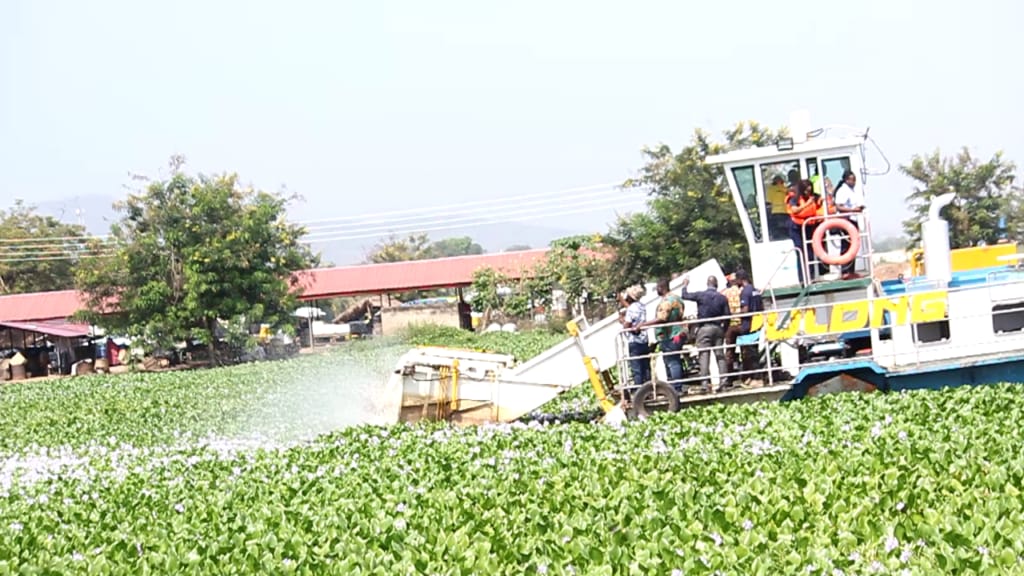
It forms thick, floating mats that choke turbines at hydroelectric plants, block water flow, and hinder navigation.
“At Kpong, the infestation is severe. If left unmanaged, it could reduce our power output significantly, with estimated losses reaching GH₵10 million monthly,” Ing. Tijani stated. “The plant’s turbines are highly sensitive to water flow dynamics, and the thick mats reduce operational efficiency, sometimes forcing shutdowns for cleaning and clearance.”
But the impact goes beyond electricity generation.
The weeds also obstruct canoe and boat transport, restrict access to fishing grounds, reduce fish stocks, and compromise ecotourism potential along the riverbanks.
This compounds the economic hardship in local communities that depend heavily on fishing and transportation on the lake.
Skimmers to the rescue
To combat the problem, the Ghana Maritime Authority has deployed three aquatic weed skimmers — specially designed machines that cut and remove the invasive plants from the water surface.
Two of these are currently operational at the Kpong site, while the third is based in Ada.
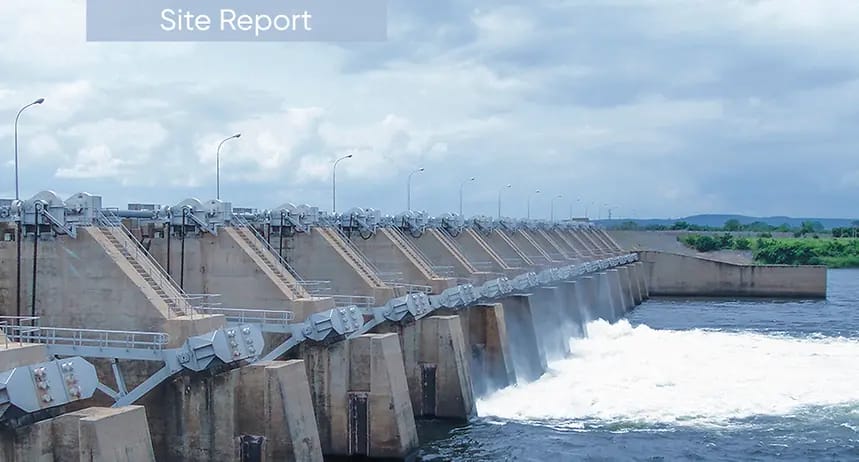
During his visit, Dr Kamal-Deen inspected Skimmers Two and Three, which form part of the Kpong Headpond Aquatic Weed Harvesting Project.
He praised their role in safeguarding Ghana’s inland water infrastructure, saying the intervention demonstrates a practical, scalable solution to an urgent environmental challenge.
“The skimmers are not just technical tools,” he explained. “They are critical to the security of our energy sector, local fisheries, and transport systems. Their impact stretches from the turbines at Kpong to the fisherman’s canoe downstream.”
He noted that the weed biomass harvested from the lake is being repurposed into compost, supporting agriculture and adding another layer of sustainability to the project.
Strengthening oversight and sustainability
Ing. Tijani emphasized that the Kpong experience is proving valuable as a learning model for similar interventions across other affected water bodies in Ghana.
“We’re collecting operational data, refining our response mechanisms, and building a framework that can be replicated nationally,” he said.
The GMA’s efforts are part of a broader initiative led by Dr Kamal-Deen Ali to overhaul Ghana’s inland waterway infrastructure since he assumed leadership of the Authority in January 2025.
Since his appointment, the retired Navy Captain has rolled out several strategic reforms, including enhanced technical collaboration with the Regional Maritime University aimed at maritime education, job creation, and innovation.
The VRA complains weeds choking the dam had a toll effect on power generation in the country if not fixed.
Power, policy, and people
The Kpong case underscores how environmental management intersects with energy security, transport logistics, and rural development.
As climate patterns shift and invasive species become more widespread, integrated solutions like the aquatic weed skimmer project may prove vital in preserving essential public utilities and sustaining vulnerable communities.
It also points to the urgent need for sustained investment in waterway infrastructure and environmental control measures, if Ghana is to fully unlock the development potential of its inland waters.

